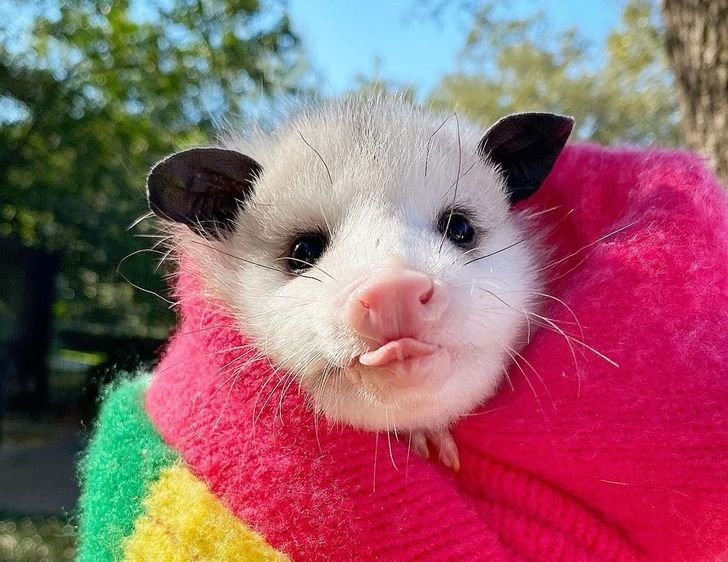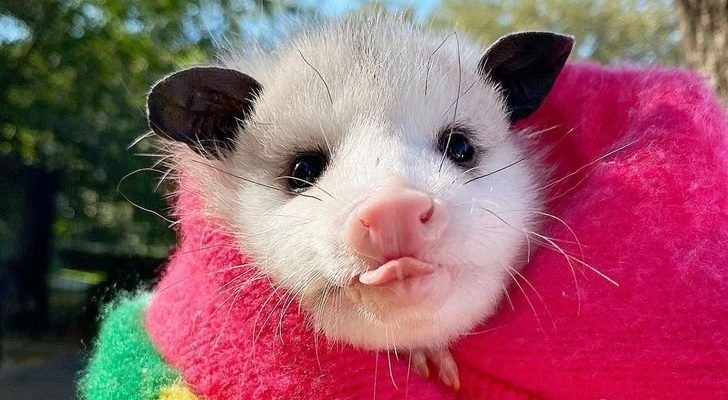
From Native American legends to modern pop culture, the opossum has appeared in countless stories, providing wisdom, humor, and even lessons about survival. When we dive into how the opossum is represented in culture and folklore, we uncover a rich tapestry of narratives that reveal much about human nature as well. Are you ready to explore this fascinating topic? Let’s dig in!
The Opossum in Native American Folklore
Many Native American tribes have woven the opossum into their folklore. For instance, to the Cherokee, the opossum symbolizes cleverness and resourcefulness. Imagine this: in tales told around the fire, the opossum often plays the role of the trickster, using its wit to navigate tricky situations. This portrayal aligns the opossum with lessons about adaptability and survival, which are essential traits for many indigenous peoples.
Another tribe, the Creek, views the opossum differently. In their stories, this little marsupial is seen as a wise figure, often helping other animals with its knowledge. It represents the idea that sometimes, the smallest creatures have the most to teach us. This perspective emphasizes humility and intelligence over sheer strength, which is a powerful theme in many folk tales.
Overall, Native American stories remind us that the opossum isn’t just a creature to be feared or dismissed. Instead, it holds a place of respect and value in many cultures and often serves as a bridge between human experiences and the natural world.
The Opossum as a Symbol of Fearlessness
In popular culture, opossums often get a bad rap. They’re frequently portrayed as pests, but there’s more beneath the surface. Opossums are known for their unique defense mechanism: they “play dead.” This fearlessness, or perhaps a clever strategy, has inspired various stories and even some memes that catch the public’s imagination.
When you think of opossums “playing possum,” it’s not just an expression. This behavior showcases a fascinating trait where the animal goes limp and emits a foul smell to deter predators. In stories, this gives the opossum a unique reputation as a brave, albeit unconventional, survivor. You might even come across tales where the opossum becomes a symbol of cunning and adaptability, teaching us that sometimes it’s okay to play dead to survive a difficult moment!
In a world where bravado often overshadows wisdom, the opossum’s approach serves as a reminder that there’s strength in subtlety. By adopting this strategy, the opossum challenges the notion of typical heroism, offering a fresh perspective on how we handle challenges.
Opossums in Literature and Media
The opossum has made appearances in various forms of literature and media, often as a comedic or quirky character. For example, in children’s books, the opossum is frequently utilized as a lovable, clumsy figure who finds itself in humorous situations. These tales resonate with kids and adults alike, teaching them valuable lessons about friendship, cooperation, and making the best out of tricky circumstances.
Additionally, cartoons and animated films sometimes feature opossums as sidekicks or comic relief. Their exaggerated traits—like big eyes and odd behavior—make them memorable. You might remember characters like the opossum from “Over the Hedge,” who provided a humorous counterbalance to the more heroic animals in the story. This representation showcases how opossums can be lovable and relatable, even if they have a bit of an oddball reputation.
Overall, these literary representations help to shape our perception of the opossum, turning it into a friendly, approachable character that adds depth and humor to stories.
Folklore from Various Cultures
Beyond Native American tales, opossums have found their way into the folklore of various cultures around the world. For instance, in some African folktales, the opossum is a character that embodies cleverness and trickery. These stories often serve as cautionary tales, highlighting the consequences of deception while celebrating the intelligence of smaller creatures.
In Australia, where opossums are often referred to as “possum,” they’re featured in Aboriginal legends. These stories frequently emphasize the connection between the animal and the land, reinforcing ecological wisdom and respect for nature. The opossum is often seen as a guardian of the forest, symbolizing harmony and balance within the ecosystem.
These various cultural representations show that, no matter where you are in the world, the opossum resonates in unique ways, often reflecting the values and beliefs of the people telling the stories.
The Opossum in Urban Myths
In many urban areas, opossums are often part of local myths and urban legends. These creatures, with their nocturnal habits and unusual appearance, have sparked a variety of tall tales. For example, some urban legends tell of opossums stealing baby items from porches or breaking into backyards. While these stories often exaggerate the opossum’s behavior, they contribute to the creature’s mystique.
Interestingly, you might even hear tales about how opossums can transmit rabies through their unique biology. However, in reality, opossums are one of the least likely animals to carry this disease. Their body temperature is too low for the rabies virus to thrive, making these myths more fiction than fact. It’s fascinating how a creature that is largely harmless can become the center of exaggerated tales in urban settings.
These urban myths serve to entertain but also reveal our fears and misunderstandings about wildlife in our neighborhoods. They remind us to look beyond the surface and consider the truths often hidden beneath well-spun stories.
Lessons from the Opossum in Modern Society
As we reflect on how the opossum is represented in culture and folklore, it’s clear that these little creatures have more to offer than meets the eye. They teach us valuable lessons about survival, cleverness, and adaptability. In modern society, the opossum serves as a reminder to embrace our quirks and to recognize smaller, seemingly insignificant beings.
Moreover, the opossum’s low-profile existence reflects the importance of living in harmony with our environment. As urbanization encroaches on wildlife habitats, acknowledging the role of creatures like the opossum can foster a sense of respect and responsibility toward nature. Their unique traits, like playing dead, encourage us to rethink our approaches to problems—sometimes, a clever retreat is the best strategy.
By understanding the cultural significance of the opossum, we can appreciate the stories and folklore that shape our relationships with these animals. They challenge us to see beyond stereotypes and discover the deeper meanings behind their presence in our lives.
In conclusion, the opossum is more than just a creature roaming the night. Through various cultural representations, we can see how it has influenced stories, offered lessons, and shaped our understanding of resilience, cunning, and humility. So, the next time you spot an opossum, remember that there’s a wealth of history and folklore wrapped up in that little creature, waiting to be appreciated.

